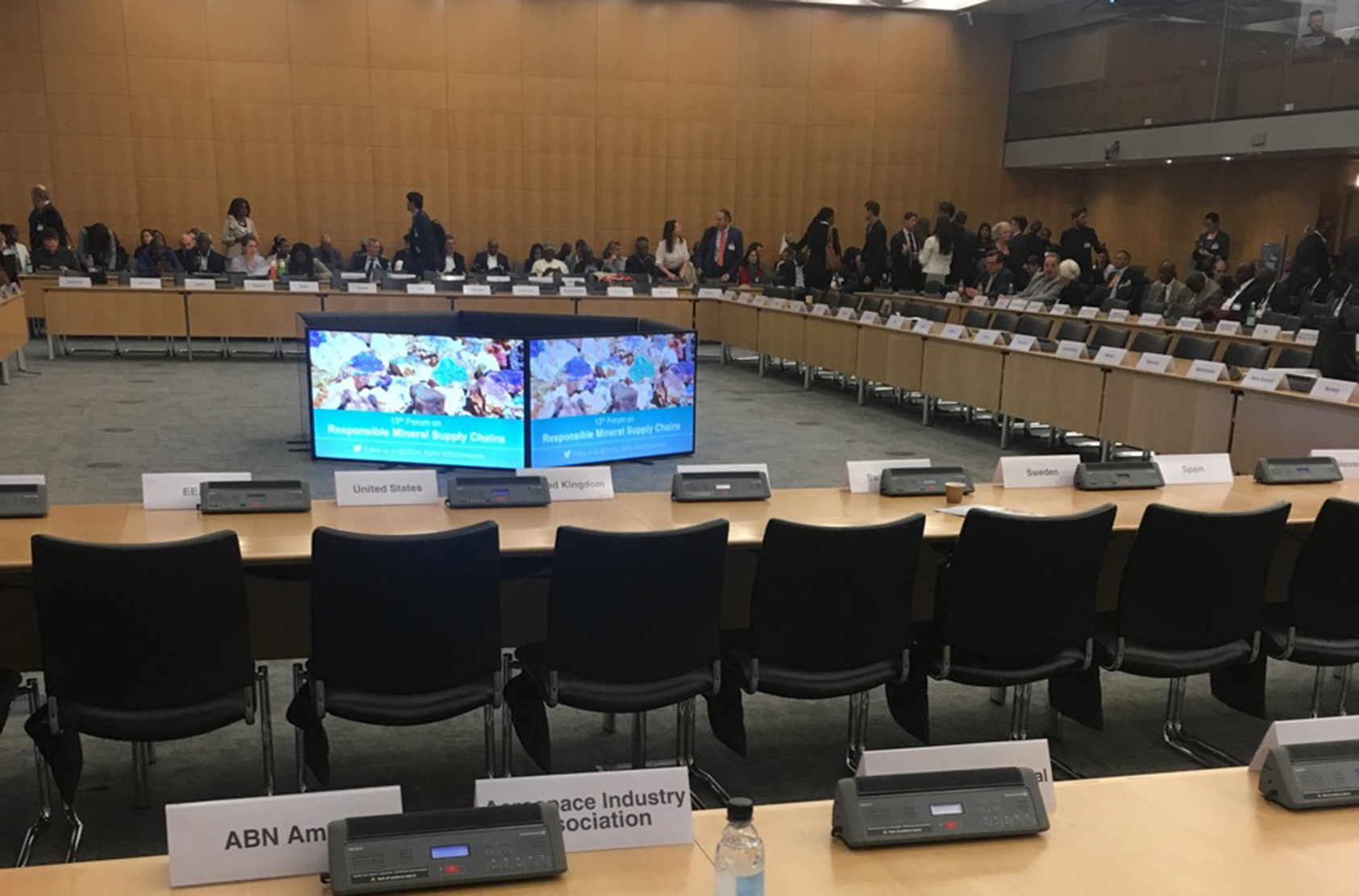In late April, representatives from government, business, trade organizations, and civil society gathered at the Organisation for Economic Co-Operation and Development in Paris for the 13th Forum on Responsible Mineral Supply Chains. As a first-time attendee of this meeting, it was a phenomenal opportunity to meet stakeholders from around the globe and discuss the implementation of the OECD due diligence framework. Attending alongside were some familiar Summit faces, including Betsy Orlando (U.S. Department of State), Steve Benson (CIBJO), Assheton Carter (The Dragonfly Initiative), multiple representatives from the Responsible Jewellery Council, and more. In addition to meeting old and new colleagues, I left with a more thorough understanding of the scope of extractive industry, the serious issues facing mineral supply chains, and just how many countries produce, rely on, or are truly defined by mineral extraction.
Angel Gurría, Secretary General of the OECD, opened the meeting with remarks concerning the implementation of the due diligence guidelines in conjunction with securing the core rights of the populations in mining areas. He stated that “Last year, the London Metal Exchange proposed introducing OECD-based requirements for producers across all their base metals. In addition, we are witnessing increasing efforts to promote responsible management of mineral supply chains at the global level through impactful public-private platforms. This includes the European Partnership on Responsible Minerals and the US-led Public-Private Alliance for Responsible Minerals Trade. Individual governments are also stepping up efforts to regulate and support companies in their undertakings. I am pleased to say that in many of these developments, the OECD Due Diligence Guidance has played – and continues to play – a fundamental role.”
The meeting continued over the next few days with parallel sessions, one focused on base metals (specifically the 3Ts and cobalt) and another track devoted to precious metals and stones (gold, diamonds, colored stones). (For those interested, the agenda can still be viewed here: http://mneguidelines.oecd.org/2019-Forum-on-Responsible-Mineral-Supply-Chains-AGENDA-English.pdf). The last day of the meeting was presented in conjunction with the World Bank and was focused on supporting artisanal and small-scale mining.
The Forum is a remarkable event, bringing together those across countries and industries to learn from each other, compare strategies, and report on what’s working to ensure the security of people, land, the minerals themselves, and human rights. I strongly encourage those in the jewelry industry who are focused on these issues to consider attending in the future. And on a personal note, attending the meeting made me feel that all the time I spent participating in Model UN in high school was totally worth it!


